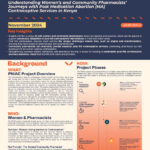
These learning briefs – a project anchor brief, a user-focused brief, and a pharmacist-focused brief – summarize lessons learned by the PMAC project during multiple phases of the project.
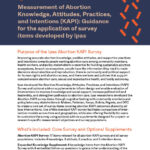
The Abortion Knowledge, Attitudes, Practices, and Intentions (KAPI) Survey with optional add-on supplements, developed by Ipas, is a comprehensive resource designed to assess and enhance community understanding, attitudes and support around abortion care.
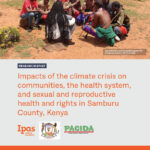
Our research shows how people and the health system in Samburu County, Kenya, are impacted in numerous ways by the climate crisis—and articulates how healthy people and communities are more resilient to the impacts of climate change.
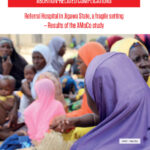
Certainly, sharing abortion stories can be a powerful act and may reduce self-stigma. But I fear that it distracts from the structural inequalities of race, poverty, age, and education by placing too much emphasis on the individual. And I worry that it lets our politicians and policymakers off the hook.
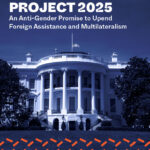
This report focuses on the damage Project 2025 would have on overseas development assistance and international cooperation.
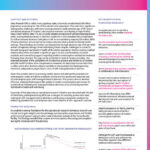
These two learning products – a project brief and a technical brief – describe the Ipas Development Foundation’s work to increase contraceptive uptake and continuation after self-managed medical abortion.
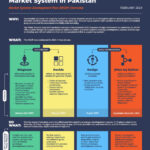
These three learning products — a market systems development plan (MSDP) overview, a workshop event summary, and a low fidelity process infographic — document our project’s efforts to understand, describe, and enhance the post-medication abortion contraceptive market in Pakistan
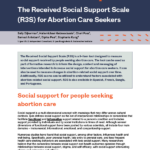
The Received Social Support Scale (R3S) is a 9-item tool designed to measure social support received by people seeking abortion care.
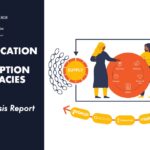
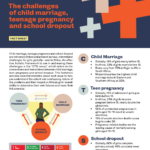
Child marriage, teenage pregnancy and school dropout are intricately linked and present serious, interrelated challenges for girls globally—and in Africa. An effective, holistic framework to use in addressing these challenges is the “CTS nexus,” which refers to the connections and interactions between child marriage, teen pregnancy and school dropout.
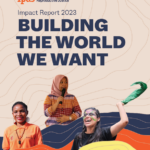
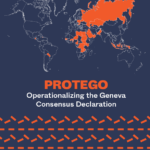
Piloted in Guatemala in 2023 and formally launched in Uganda in February 2024, Protego is a threat to existing international human rights frameworks.
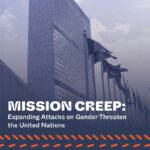
This executive summary provides an overview of findings from a forthcoming 2024 report, Mission Creep: Expanding Attacks on Gender Threaten the United Nations. It provides key findings and recommendations as to how feminist activists, government representatives, and UN officials can prepare an intersectional human rights response that is cross-cutting, bold, and prepared to defend the universality of human rights.
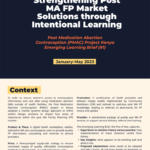
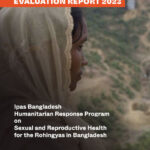
This evaluation report details the 2022 performance evaluation of the “Humanitarian Response Program” implemented in the Rohingya refugee camps in Cox’s Bazar, Bangladesh by Ipas. The evaluation assessed facility readiness and capacity of the service providers to provide comprehensive menstrual regulation (MR), post abortion care (PAC), contraceptive services and trauma/survival centered care. This evaluation also documents relevant challenges and barriers faced during program implementation and provides recommendations for the program’s sustainability and future
scale-up.
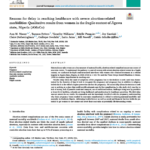
This article describes the pathways to care for women with severe abortion-related near miss events in a fragile context.
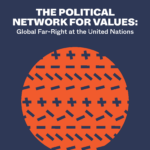
On November 17, 2023, the United Nation’s New York City headquarters will host a gathering of the Political Network for Values (PNfV), a major organizing nexus for the global far-right. Founded almost a decade ago, the benignly named PNfV has largely flown under the radar. In this time, the group has blossomed into a key networking hub and training ground for far-right activists and political leaders seeking to diminish or extinguish minorities rights and depreciate multilateral human rights systems—including the United Nations itself.
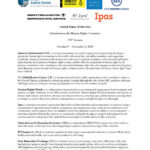
On October 17-18, 2023, the United Nations Human Rights Committee reviews U.S. compliance with the ICCPR, including the impact of Dobbs on its human rights obligations. Global Justice Center, State Innovation Exchange, Amnesty International, Ipas, Human Rights Watch, RH Impact, and Obstetricians for Reproductive Justice submitted this report to the Committee that details the human rights violations caused by Dobbs in the U.S.
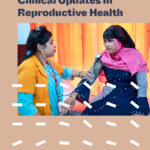
Clinical Updates in Reproductive Health (CURHs) are designed to provide Ipas staff, trainers, partners and other health-care providers with access to up-to-date, evidence-based recommendations. In general, the recommendations are the same as those in the World Health Organization's 2012 Safe Abortion: Technical and Policy Guidance for Health Systems, Second edition. In rare cases, the recommendations have been modified due to the settings where we work. In addition, if there is more current evidence to inform the recommendations, they will be updated here. Please note: Clinical Updates in Reproductive Health provides Ipas’s most up-to-date clinical guidance. Recommendations in this publication supersede any clinical guidance in Ipas curricula that differs from the guidance provided here.

